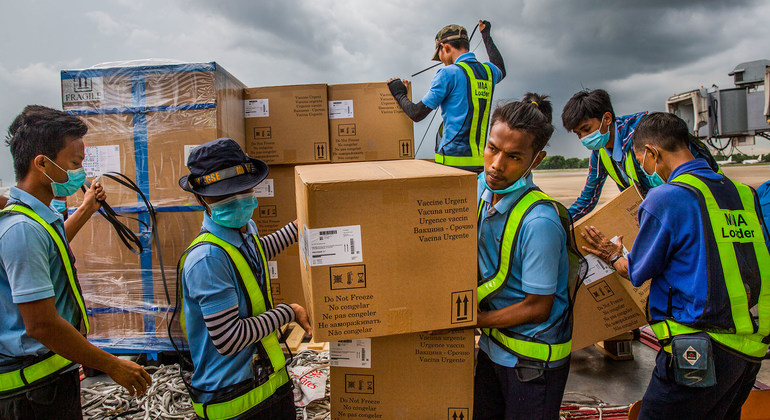Amid the “triple impact of poverty, the current political unrest and economic crisis”, coupled with the rapidly spreading third wave of COVID-19, that is “practically like a tsunami that’s hit this country”, the people of Myanmar are “experiencing the most difficult moment in their lives”, WFP Myanmar Country Director Stephen Anderson said, from Nay Pyi Taw.
Hunger doubles
WFP needs $86 million to help fight hunger in the country over the next six months, amid turmoil since the military ousted the elected government led by Aung San Suu Kyi on 1 February.
In April, the UN agency estimated that the number of people facing hunger could more than double to 6.2 million in the next six months, up from 2.8 million prior to February.
Subsequent monitoring surveys carried out by WFP have shown that since February, more and more families are being pushed to the edge, struggling to put even the most basic food on the table.
“We have seen hunger spreading further and deeper in Myanmar. Nearly 90 per cent of households living in slum-like settlements around Yangon say they have to borrow money to buy food; incomes have been badly affected for many,” said Mr Anderson.
Tripling in support
In response, the WFP tripled its planned support to the country and starting in May, launched a new urban food response, targeting 2 million people in Yangon and Mandalay, Myanmar’s two biggest cities.
The majority of people to receive assistance are mothers, children, people with disabilities and the elderly. To date, 650,000 people have been assisted in urban areas.
At the same time, the WFP is “stepping up its operations” to reach newly displaced people affected by the clashes and insecurity in recent months. More than 220,000 people have fled violence since February, and are in urgent need of humanitarian assistance.
WFP has reached 17,500 newly displaced people and is working to assist more in August.
In total, 1.25 million people in Myanmar have received WFP food, cash and nutrition assistance in 2021 across urban and rural areas, including 360,000 food-insecure people in Rakhine, Kachin and Shan states, where there have been longstanding concerns.
Access critical
However, with $86 million more required over the next six months, it is uncertain how far these operations can go.
“It is critically important for us to be able to access to all those in need and receive the funding to provide them with humanitarian assistance,” Anderson explained. “Now more than ever, the people of Myanmar need our support,” he added.



